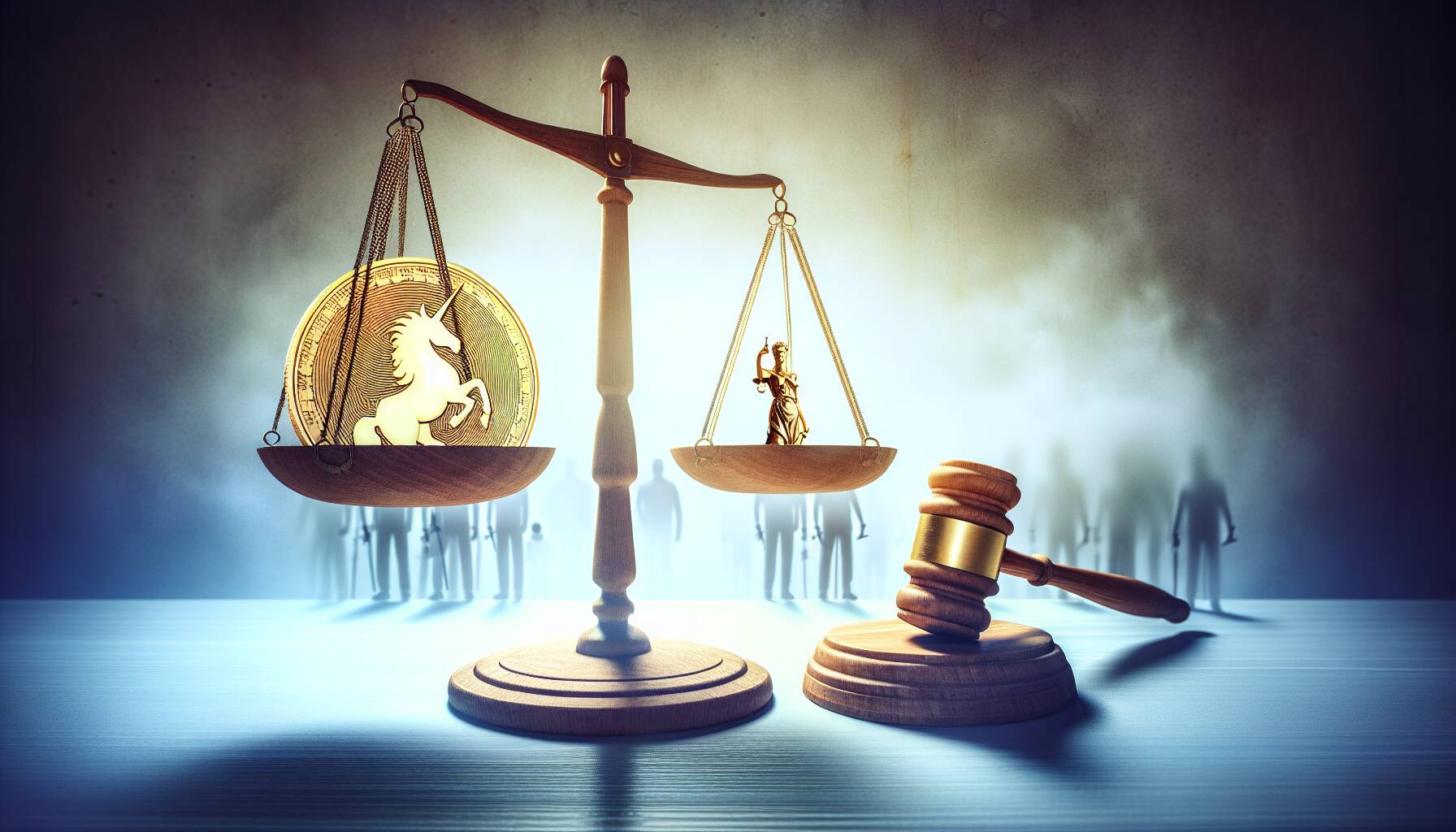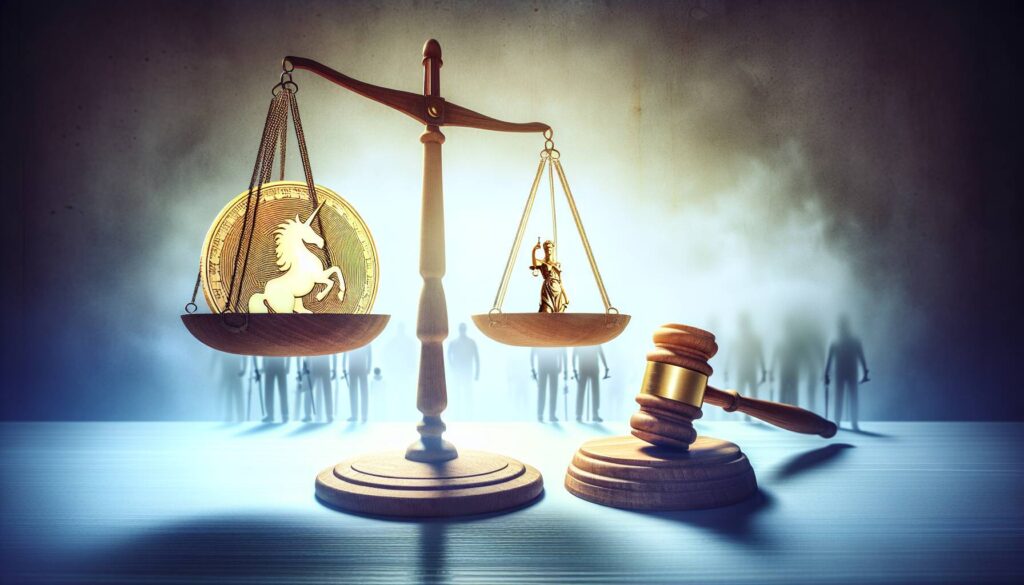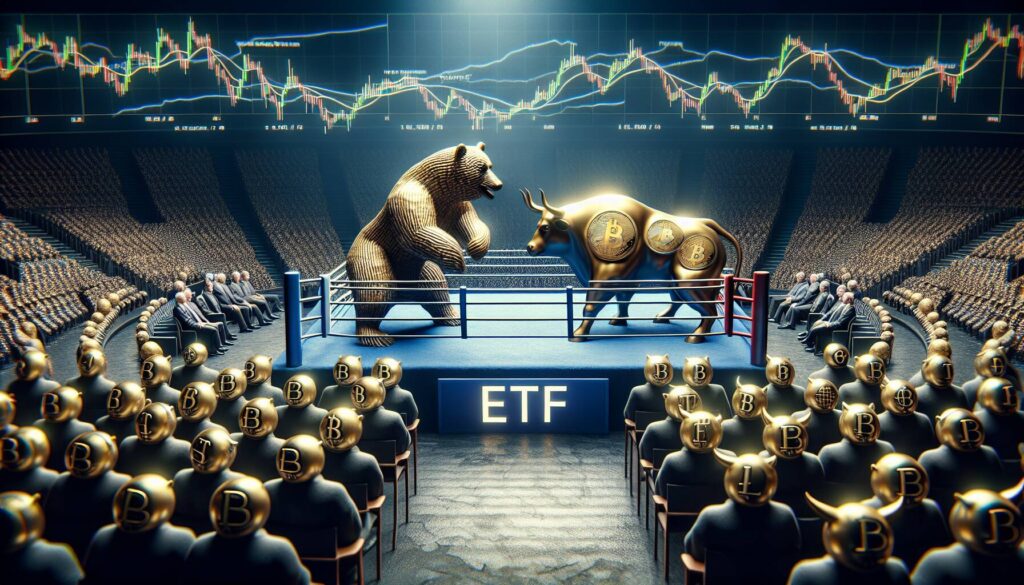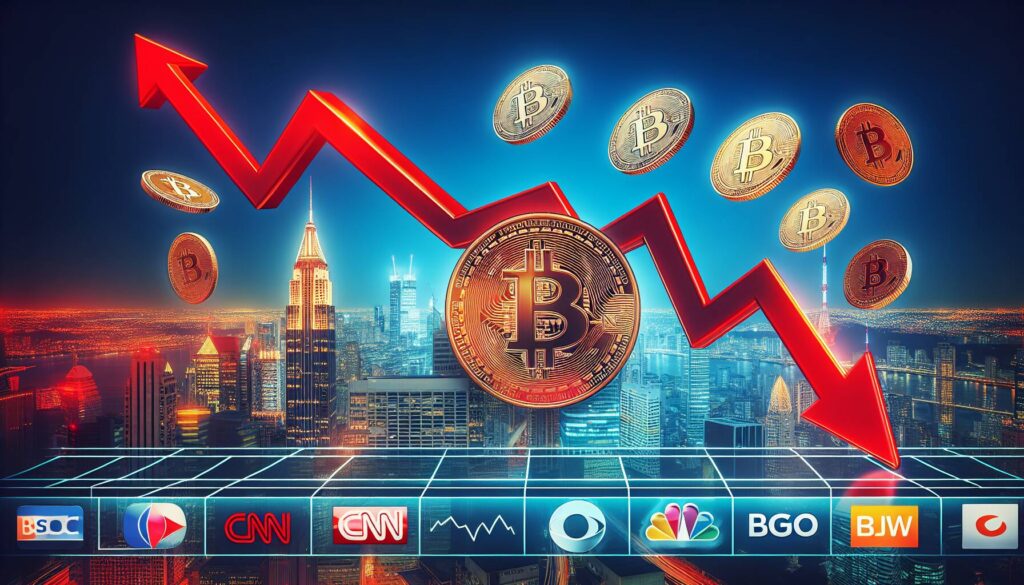In a striking turn of events, Miami-based cryptocurrency firm Unicoin has decisively rejected a settlement proposal from the U.S. Securities and Exchange Commission (SEC). CEO Alex Konanykhin shared this development in a letter to investors, where he described the SEC’s attempts at negotiation as an “ultimatum.” This news was first reported on Tuesday and has raised questions about the ongoing regulatory landscape for crypto companies.
Unicoin received a Wells notice back in December, indicating that the SEC planned to initiate enforcement actions against the company. The SEC has raised allegations concerning potential fraud and the sale of unregistered securities, although no formal actions have yet been initiated. As Konanykhin stated, the negotiations were initially scheduled for April 18, but Unicoin chose not to attend, describing the SEC’s pre-meeting demands as “unacceptable.”
“The SEC’s probe has caused multi-billion-dollar damage to the company and its investors,” said Konanykhin, adding that these regulatory hurdles have significantly hindered the company’s growth potential.
Remarkably, the SEC’s aggressive stance on cryptocurrency regulation appears to have shifted since the tenure of former chair Gary Gensler. In recent months, the agency has scaled back on its investigations into various crypto firms, including high-profile companies like Binance and Coinbase, often favoring settlement negotiations over litigation. Notably, a recent settlement with Nova Labs, the parent company of Helium, further exemplifies this trend, as the SEC agreed to drop claims that certain tokens were unregistered securities following a civil fraud settlement.
Konanykhin’s contention that the SEC has thwarted Unicoin’s potential growth—claiming that the company could have evolved into a $10 billion publicly traded entity—highlights a prevailing frustration among crypto businesses with regulatory uncertainties. The SEC’s prolonged investigations and enforcement actions leave many companies in a state of limbo, stifling innovation and growth opportunities in the burgeoning cryptocurrency sector.
As the discussion unfolds, it becomes clear that the dynamics between cryptocurrency firms and regulators remain complex and often contentious. The industry watches closely as these events continue to develop, underscoring the delicate balance between regulation and innovation in the fast-paced world of digital currencies.

Unicoin’s Standoff with the SEC: Key Points
The ongoing conflict between Unicoin and the U.S. Securities and Exchange Commission (SEC) raises significant concerns for investors and the broader cryptocurrency market. Here are the key points:
- Unicoin’s Rejection of Settlement Negotiation:
- Unicoin declined to attend an SEC settlement meeting, considering the terms “unacceptable.”
- The refusal to negotiate reflects Unicoin’s aggressive stance against regulatory pressures.
- SEC’s Warning and Potential Enforcement Action:
- Unicoin received a Wells notice in December, indicating possible enforcement actions due to alleged violations.
- No formal enforcement action has been taken yet, leaving uncertainty for investors.
- Historical Context of SEC’s Stance on Crypto:
- The SEC has shifted its approach to crypto regulation since President Trump’s administration, with many investigations being halted.
- Recent settlements indicate a trend of negotiation rather than aggressive litigation, potentially impacting how crypto firms operate.
- Claims of Financial Harm:
- Konanykhin stated the SEC’s actions have led to “multi-billion-dollar damage” to Unicoin and its investors.
- He believes Unicoin could be a $10B+ publicly traded entity if not for the SEC’s intervention in their ICO and fundraising efforts.
- Current Market Impact:
- The uncertainty surrounding Unicoin and its regulatory status may affect investor confidence across the cryptocurrency market.
- Potential investors should closely monitor developments as they could signal broader regulatory trends and impacts on similar companies.
“We were forced into a standstill,” Konanykhin wrote, highlighting the significant barriers the SEC has imposed on Unicoin’s growth and operations.
Unicoin’s Standoff with the SEC: Analyzing the Implications for Crypto Regulation
Unicoin’s firm refusal to engage with the SEC over ongoing investigations shines a spotlight on the complex and often tumultuous landscape of cryptocurrency regulation. While other crypto entities have navigated terms with the regulator—like the recently settled case with Nova Labs—Unicoin’s stance has its clear competitive advantages and disadvantages.
By rejecting the SEC’s invitation to negotiate, Unicoin positions itself as a staunch defender of its operational integrity and investor interests. This can enhance its reputation among supporters who value autonomy in a market often shaped by regulatory uncertainty. The boldness of CEO Alex Konanykhin’s proclamation that the SEC’s actions have caused “multi-billion-dollar damage” to the firm also appeals to potential investors who might prioritize risk management and strong leadership in navigating regulatory challenges.
However, this standoff does not come without its drawbacks. Choosing to disengage from settlement talks could lead to prolonged scrutiny and potentially escalated enforcement actions by the SEC. In light of the agency’s recent history of shifting its approach to crypto regulations—with the easing of investigations against others—it raises questions about whether this strategy will backfire, ultimately complicating future fundraising efforts or market opportunities for Unicoin.
The situation at Unicoin may resonate differently among various stakeholders in the crypto ecosystem. Investors seeking high-growth potential might find Unicoin’s defiance appealing, particularly if they believe in the company’s intrinsic value. Conversely, risk-averse investors and mainstream financial institutions could grow wary, perceiving the company as a potential liability amid regulatory upheaval. Furthermore, competing projects looking for a more compliant relationship with regulators could leverage Unicoin’s situation as a cautionary tale, illustrating the risks associated with direct opposition to regulatory bodies.
In summary, Unicoin’s decision to decline SEC negotiations has the potential to define its market position distinctly, creating opportunities for support among certain investor cohorts while alienating others wary of regulatory risks. The unfolding chapter in crypto regulation will certainly be one to watch, especially as other companies evaluate their own strategies in dealing with oversight from federal agencies.















